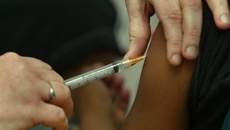
The Southern District Health Board has apologised after doctors failed to diagnose a woman had cancer, despite her coming to hospital with bleeding three times in two and a half months.
A health and disability commissioner report released yesterday found several deficiencies in the care of the woman in each of her three visits to the emergency department.
"I consider the cumulative effect of these factors and missed opportunities demonstrates a clear pattern of poor care, attributable to SDHB as the overall service provider," commissioner Morag McDowell said.
"There were numerous missed opportunities by a number of SDHB clinicians across several presentations to assess the woman's presentation critically and coordinate the appropriate investigations, which had they been performed, would more likely than not have identified her rectal cancer."
The woman, who at the time was going through chemotherapy for lymphoma, first went to ED on November 12, 2018 with rectal bleeding, and returned again on December 10 and January 27, 2019.
Rectal examinations on each visit found no tumours.
The day after her last trip to ED the woman visited her GP, who detected an irregularity and made an urgent referral to a private gastrointestinal surgeon and endoscopist.
Eleven days later the surgeon found a "significant mass" on the rectal wall, and rectal cancer was later diagnosed.
McDowall said the three doctors who examined the woman were relatively junior, but an independent expert's opinion was that the tumour should have been able to be detected by feel any of the times she went to ED.
"I am unable to determine the adequacy of the examinations carried out in this case," she said.
"What was more important was that the normal digital rectal examinations did not exclude rectal cancer, and further investigation was warranted."
The patient wrote to the SDHB and said that despite having had 10 previous years of excellent treatment, the missed diagnosis had lowered her trust in the health system.
"She stated that she would like a face-to-face apology from those who missed opportunities to diagnose her tumour, and reiterated the impact the delayed diagnosis had on her health."
The board replied that it was sorry the opportunity to diagnose her tumour at an earlier stage was missed, and said it would review the colonoscopy referral process.
SDHB chief executive Chris Fleming said that the board accepted the HDC's finding and deeply regretted the missed opportunities for diagnosis.
"We have arranged to meet with the patient to sincerely apologise for our failures in provision of care," he said.
The board accepted all the commissioner's recommendations and would implement them within her suggested timeframes, he said.
This is the second adverse HDC report into care at an SDHB emergency department in recent months.
In January the commissioner found substandard care of a man in 2019 had likely contributed to his death, after doctors failed to detect colon cancer, which ultimately killed him.
That patient was a man in his 50s, whose history of mental illness and the possibility of side-effects from his medication contributed to doctors not pursuing the possibility his pain could be cancer-related.
That patient had visited the ED seven times before his cancer was finally detected.
SDHB medicine, women's and children's health medical director Caroline Collins said the prime function of the emergency department was to stabilise and treat acute patients.
"In this case, and in the earlier case, the patients were seen by specialists relevant to their symptoms, as well as emergency medicine staff, as is often the case with most patients we see through ED, depending on their needs," Collins said.
"This means that it would be incorrect to draw conclusions that these two outcomes point to an ongoing issue in ED."
Take your Radio, Podcasts and Music with you









